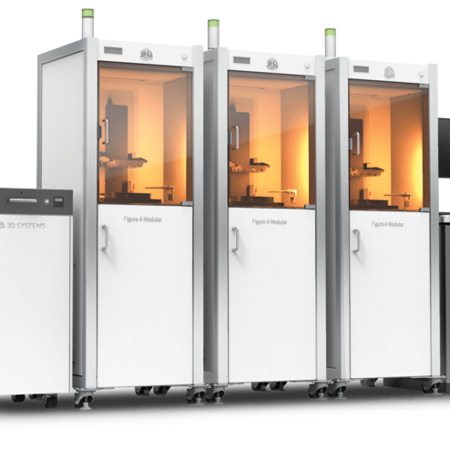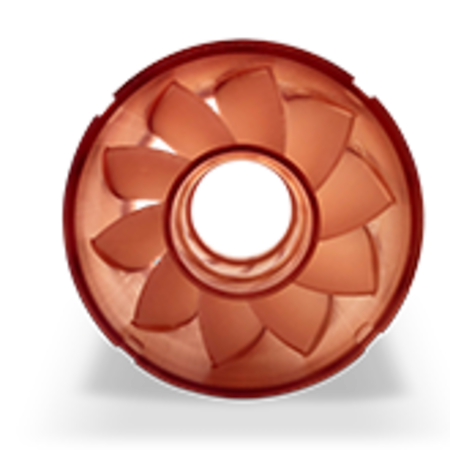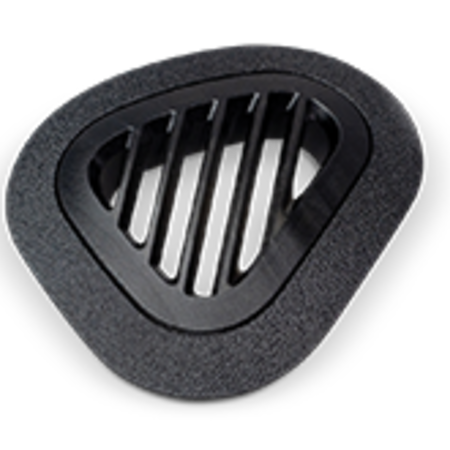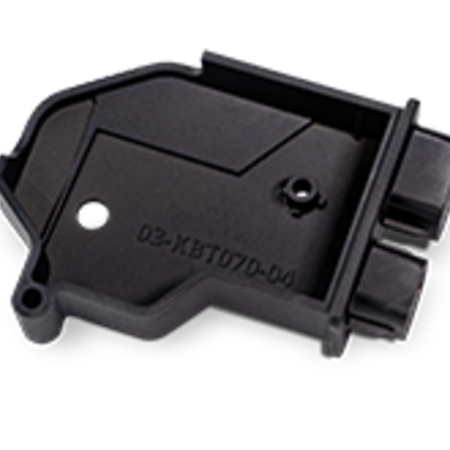Challenge
Cut development timelines and optimize supply chain to drive faster innovation and better prices for company and customers.
Solution
Fast and versatile part production using 3D Systems Figure 4 Modular and Figure 4 materials.
Results
- Achieve functional parts within hours;
- Shrink development cycle for molds from one month to two days;
- Streamline development for improved cost outcomes;
- Answer wide range of applications through versatility of Figure materials portfolio.
French company Decathlon is the world’s largest sporting goods retailer, offering a wide variety of equipment that spans a broad range of recreational and competitive activities. The company is home to over 100 brands and registers scores of patents each year through its research and development teams. The emphasis Decathlon places on innovation is at the core of its competitive advantage, driving high-quality products at cost-effective prices. By keeping operating expenses low through state-of-the-art production processes, an optimized supply chain, and a minimal retail footprint, Decathlon has won a sizable cut of the market, not only in France, but across the globe.
A major driving force within Decathlon’s R&D engine is the Figure 4® Modular by 3D Systems and its diverse and growing portfolio of functional materials. According to Gregoire Mercusot, a materials engineer within the additive manufacturing lab (ADDLAB) at Decathlon, the addition of the Figure 4 Modular has given Decathlon a major competitive edge in terms of speed, precision, and versatility.
Figure 4 is a projection-based additive manufacturing technology that uses a non-contact membrane to combine accuracy and amazing detail fidelity with ultra-fast print speeds. The Figure 4 Modular is a scalable, semi-automated 3D production solution designed to grow with capacity. Comprised of a central controller that can be paired with a single printer-module up to 24 printer modules, Figure 4 Modular is a flexible option to poise businesses for growth.
Mold master patterns ready in two days
An early Figure 4 success for Decathlon was a project to create fresh water carp fishing weight sinkers. These are used both for the projection of the fishing line as well as for stabilization of the hook. The project began when Decathlon team member Gautier Destrebecq realized Decathlon’s competition only offered one product option in stores. Wishing to diversify the range of offerings, he worked to develop several models. However, because Decathlon’s mold supplier did not have the ability to create the master patterns, Decathlon needed to find another way to obtain those parts.
Prior to having the Figure 4 Modular, producing the mold master patterns would have required enlisting a second supplier to develop them. Decathlon’s typical start to finish timeline for projects like this is one month. Rather than take this route, Gautier turned to Decathlon’s internal ADDLAB, to see if there was a faster way to get robust parts that could withstand the mold-making process. These parts would need the ability to retain shape and detail at temperature exposure as high as 160˚C at 180 bar pressure. After testing various options, the desired performance came from 3D Systems’ Figure 4® HI TEMP 300-AMB, a transparent and rigid plastic engineered to withstand ultra-high temperature environments.
With a reliable material at the ready, ADDLAB 3D printed the fishing weight sinkers and shipped them to its mold supplier within two days for the molds to be created. Beyond the massive time savings this process introduced, creating the mold master patterns in-house enabled Decathlon to cut additional costs from product development while accelerating time to market. According to Destrebecq, “That’s the magic of in-house 3D printing. I am less stressed in my design and am able to achieve goals that are impossible using a traditional approach.”
Material versatility keeps R&D moving forward across the board
To drive innovation across as many product areas as possible, Decathlon takes advantage of Figure 4’s material versatility to match a diverse range of applications with the best fit of material properties. Mercusot says that in addition to the speed and precision of Figure 4, the platform’s material selection and flexibility put the system in high demand within ADDLAB.
Additional materials in use at Decathlon include:
- Figure 4® PRO-BLK 10: With fast print speeds of up to 62 mm/hr and thermoplastic-like behavior, Mercusot says Figure 4 PRO-BLK 10 is a practical and effective choice for a wide range of ADDLAB projects. The precision of Figure 4 printing combined with the excellent surface quality of this material help Decathlon iterate with confidence. Part examples include innovative assemblies with retracting and interchangeable attachments;
- Figure 4® FLEX-BLK 20: This fatigue resistant black plastic offers the look and feel of production polypropylene and is being used to advance products that will ultimately hit shelves in polypropylene. Part examples are far-reaching, and include items such as bike components;
- Figure 4® RUBBER-BLK 10: Great for simulating deformation, this slow-rebound, hard-rubber material has found a place at Decathlon for a range of touch applications, with part examples that include grips, tire treads, and shoe insole testing.
High-quality design and optimized processes deliver better products
Decathlon’s mission is to sustainably bring the power of sport to everyone, everywhere, by designing the best products at the best prices and innovating for quality and performance so everyone can play. The addition of 3D Systems’ Figure 4 Modular system and materials perfectly aligns with this mission and is helping Decathlon deliver on it.



